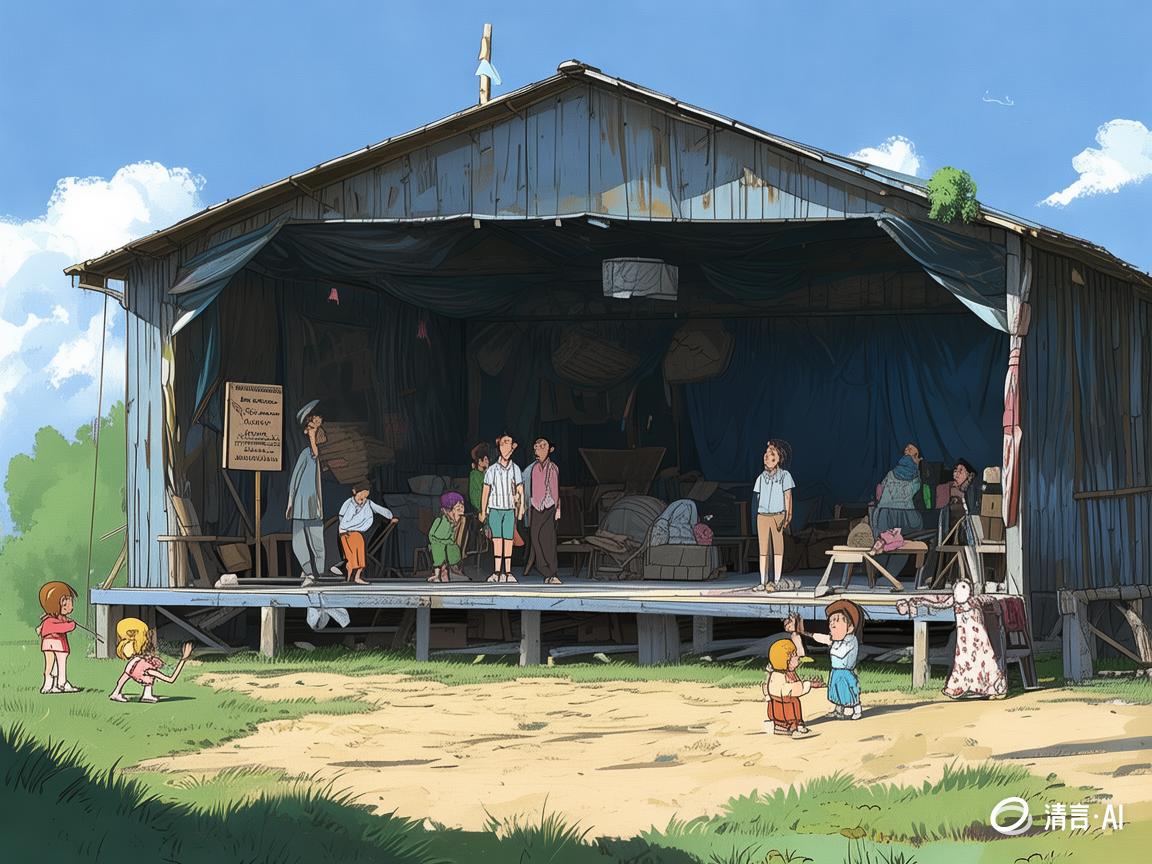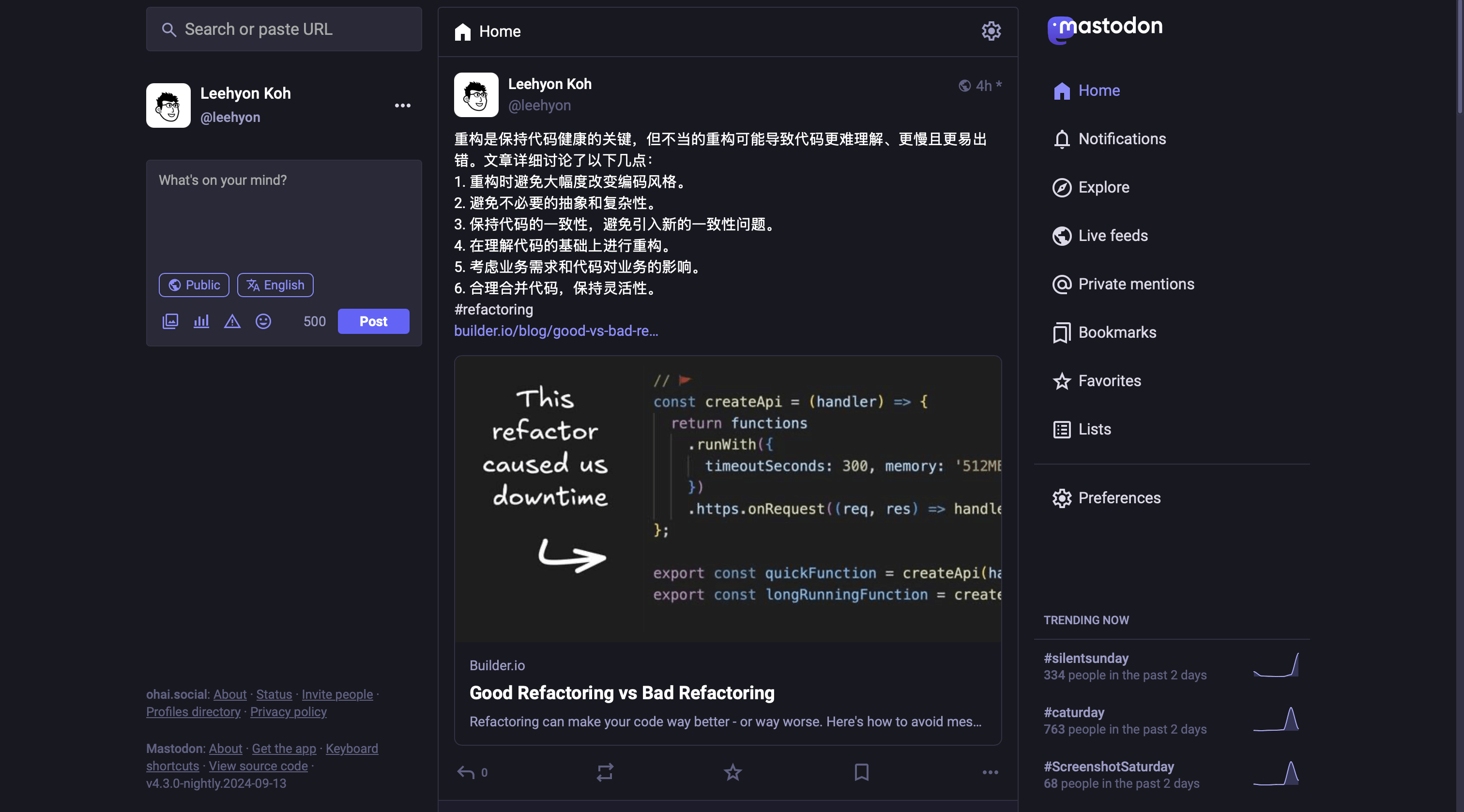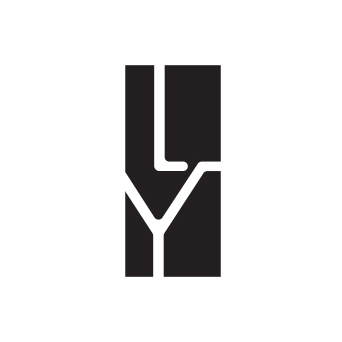Foreword
This article is a record and reflection on life from 2024-09-17 to 2024-09-22.
This week, I only worked for three days, but due to project requirements, I worked from home on Saturday. I began to understand that “the world is a huge make-do setup”, not thinking deeply and being superficial is probably the norm. The weather is finally not so hot, autumn should be coming. Tossed around with Mastodon and am ready to play around in the Fediverse.
The world is a huge make-do setup?
I wonder if everyone has had similar experiences or thoughts at work? Actually, this joke has been around for a long time, but some recent work events have made me feel more and more that the “make-do setup” might not be a fantasy, it may be right beside us.
The make-do setup theory suggests that people find that the world does not operate as precisely as we perceive it, but is full of chaos and superficiality everywhere. Various organizations look glamorous on the surface, but each has its own issues.

Of course, most of the time, I am also make-do, so we are all in the same boat. I don’t think it’s meaningful to judge this phenomenon now, because it is indeed the norm and difficult to avoid. Think about our work, isn’t it often like this:
- The team may have been quickly assembled due to a temporary project or emergency, without enough time for thorough planning and preparation.
- Team members may not match in skills, experience, or work styles, and cannot collaborate effectively.
- Communication between team members is insufficient, leading to misunderstandings and conflicts.
As discussed in the last issue about chaos, isn’t this another manifestation of it? Entropy increase is the truth, but more importantly, “to see the world as it is, and to love it”1:
- Many seemingly professional things are actually just superficial appearances, others are the same, so boldly try, as long as you research deeply, you will find opportunities.
- Maintain curiosity about the field and skepticism about professionalism. Professionalism can isolate criticism and reinforce social hierarchy, encourage openness through questioning and personal sensitivity.
- Invest trust and time in yourself, respect autonomy, while still interacting with society, not just following the societal definitions. What if it’s a make-do setup? I have my own definition.
Perhaps we can be like Truman2, continuously picking up the true fragments of the world along the way, and then stepping through that door to say:
Good morning, and in case I don’t see ya, good afternoon, good evening, and good night!
Mastodon
This week I started posting things on Mastodon and integrated it into the “Toots” sub-column of the blog. The experience so far has been good, and I will keep it updated.
Actually, I registered on Mastodon last year, but didn’t play much with it. This week, I revisited the Fediverse and found it quite interesting.

Currently, I will post some daily life on Mastodon, which will be quite trivial, and I will also record some thoughts or share information and links that I find valuable. Friends who are interested are welcome to join. You can find me on ohai.social at @[email protected].
If you want to learn more about Mastodon and the Fediverse, you can check out the following articles:
- Fediverse 联邦宇宙
- 写给 Twitter 用户的 Fediverse 指南
- 什么是 Mastodon(长毛象),应该怎么玩
- 谈谈 Mastodon、Fediverse 和 ActivityPub
- 去中心化社交网络 Mastodon 研究报告:平台与协议之争背后,它会是最终赢家吗
Fun stuff
This section will record some interesting inputs, such as articles read, podcasts listened to, fun items purchased, etc. Although most of the content will be automatically synced in the “Toots” column, some of it will still be selected and listed here.
Articles
- Default blind: In software business, due to lack of observation, people often fail to correctly position and make decisions.
- Thank You for the Code: Thank you for the code you provided. We often use others’ code and enjoy its convenience, without always asking for more. Even when encountering problems, we should express gratitude first, then suggest improvements.
- 10 Docker Myths Debunked: This article reveals eight common misconceptions about Docker, including its open-source nature, differences with virtual machines, feature differences between versions, relations with Kubernetes, security, development status, learning difficulty, and application scope.
- The 10 best tools to green your software: GitHub lists 10 tools that help reduce the carbon footprint of software, aiming to help developers write code more sustainably.
- The big ideas behind retrieval augmented generation: This article explores the usage of Retrieval Augmented Generation (RAG) in generative AI.
- Good Refactoring vs Bad Refactoring: Refactoring is key to keeping code healthy, but improper refactoring can make code harder to understand, slower, and more error-prone.
Tools
- Mastodon embed timeline widget: Embedding the Mastodon timeline in HTML pages.
